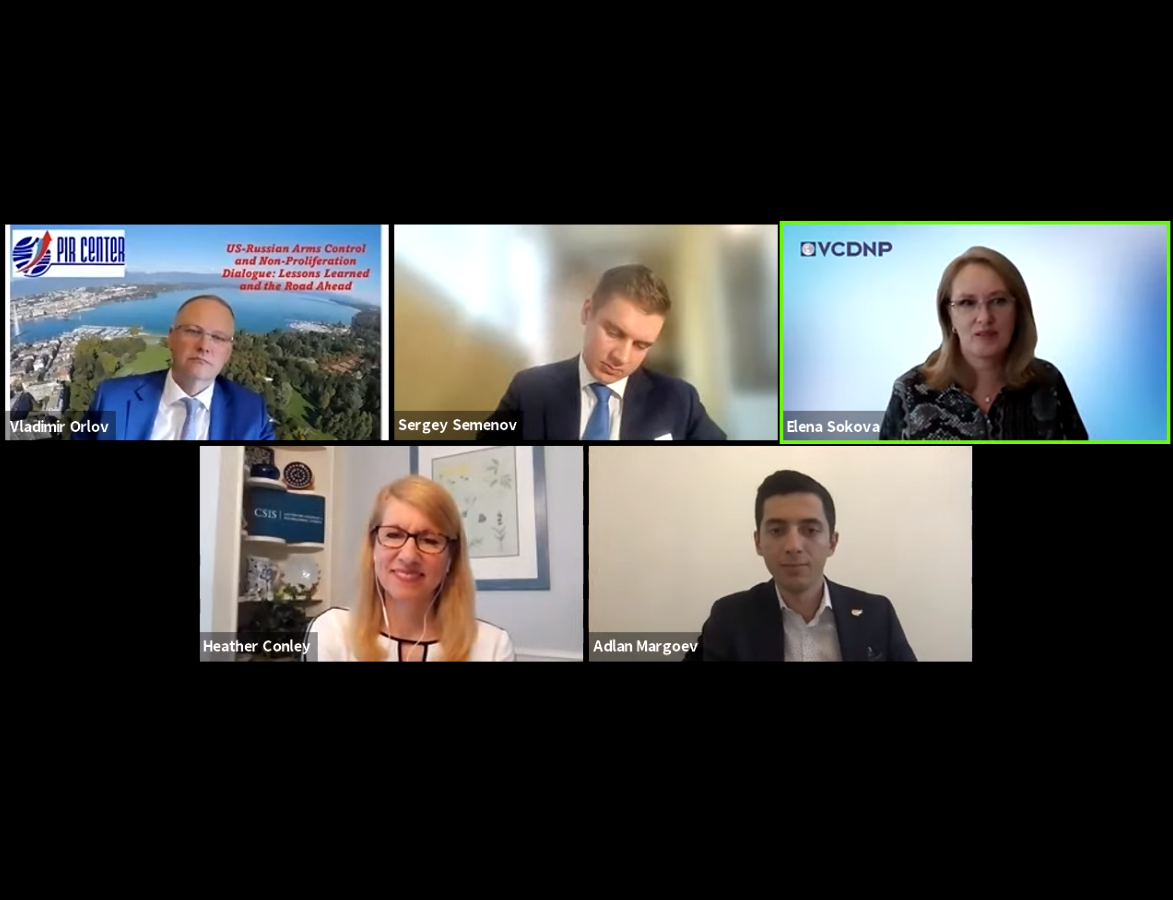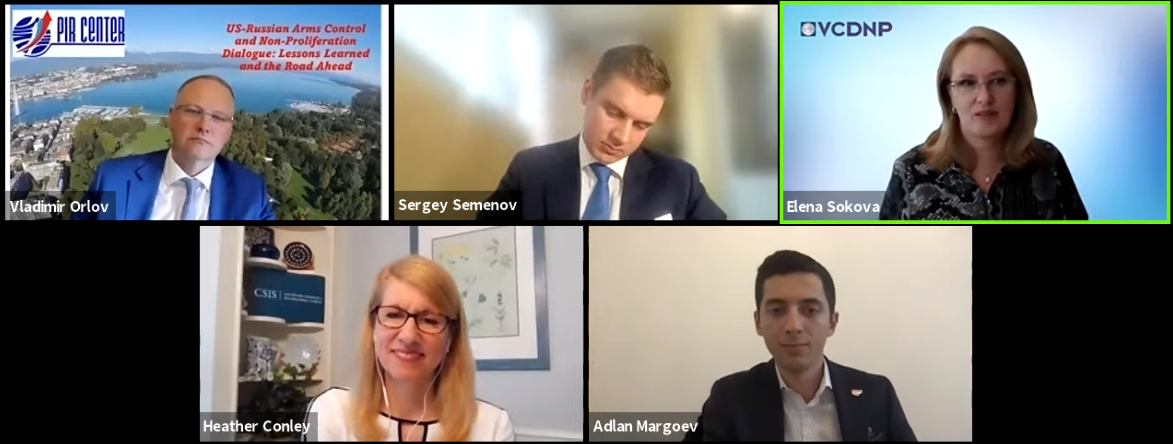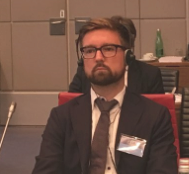
As Present Joe Biden of the United States and President Vladimir Putin of the Russian Federation prepare to meet in Geneva to discuss the state of and potential future for US-Russian relations, many are wondering what the two leaders can accomplish. On the eve of the summit, the VCDNP and the PIR Center held a webinar to discuss the lessons learned from longstanding US-Russian cooperation on nuclear non-proliferation and arms control.
Among the speakers were PIR Center Director Vladimir A. Orlov, Senior Vice President for Europe, Eurasia, and the Arctic at the Center for Strategic and International Studies Heather Conley, Analyst and Chief Strategy Officer at the Institute for International Studies of MGIMO University Adlan R. Margoev, and Coordinator of PIR Center's Russia and Nuclear Nonproliferation Program Sergey Semenov. VCDNP Executive Director Elena K. Sokova moderated the event and gave opening remarks.
In the context of the Biden-Putin summit, the speakers discussed PIR Center's new monograph entitled Russia-U.S. Nuclear Nonproliferation Dialogue: Lessons Learned And Road Ahead. The monograph covers a broad spectrum of issues ranging from the negotiation of Articles I and II of the Treaty on the Non-Proliferation of Nuclear Weapons (NPT) to the current state of the NPT Review Process.

In her opening remarks, Ms. Sokova congratulated the PIR Center on the publication of the monograph. She drew particular attention to the fact that the book, which is dedicated to one of the NPT's original architects Ambassador Roland Timerbayev, has a substantial number of authors from the young generation of non-proliferation experts. This, she said, was one of Ambassador Timberbayev's biggest passions, with which he engaged American partners such as Dr. William Potter of the James Martin Center for Nonproliferation Studies, to jointly "recruit and nurture a new cadre of non-proliferation experts and rebuild the institutional memory about non-proliferation cooperation in the two countries."
Dr. Orlov began his remarks by emphasising the historical significance and salience for today of US-Russian cooperation on nuclear non-proliferation and arms control. He argued that nuclear issues should be isolated from other issues to allow for progress in this area despite tensions in bilateral relations. Dr. Orlov also noted a number of areas where the US and Russia would be well served to enhance cooperation, including proliferation prevention, further reductions and limitations of nuclear arms, the peaceful uses of unclear energy, strengthening nuclear safeguards, restoring the Joint Comprehensive Plan of Action (JCPOA) and reducing the risks posed by nuclear terrorism.
In her remarks, Ms. Conley noted that the PIR Center book came out in a fortuitous time, when the lessons it outlines could be applied to US-Russian strategic stability talks - one outcome for the Biden-Putin summit that she hopes for. However, she also said that the summit should not be viewed as a panacea, but rather as an opportunity to begin with "building blocks." She does not believe that the summit will lead to a legally binding treaty in the near term, but suggests that these building blocks could provide "guardrails" against escalation due to cyberattacks or tensions in discussing issues related to the use and weaponisation of outer space or high-speed weapons like hypersonic delivery vehicles.
Mr. Margoev, the author of one of the monograph's chapters on Iran, said that despite progress on the JCPOA, a full return to the agreement may be insufficient to stabilise US-Iranian relations and US-Russian cooperation on Iran. He expressed the view, however, that the talks taking place in Vienna on the JCPOA are a positive development, including US-Russian engagement in this regard. Mr. Margoev argued that this renewed dialogue offers the opportunity to facilitate more regional approaches to Middle East security challenges. In his view, both tracks - the regional track and the high-level multilateral track - will be required for future progress.
Finally, Mr. Semenov closed out the formal remarks with some of the key takeaways from the monograph, chief among them that the US and Russia should resist the urge to play politics with non-proliferation issues. Rather, the two should treat non-proliferation in isolation from other agendas with due understanding of its historic importance. He also noted the increase in salience of work being done within the P5 on nuclear issues, confidence-building measures, multilateral approaches to space issues, and intensified efforts to understand how and why US and Russian approaches to nuclear arms control differ from one another.
Access to the monograph for purchase is forthcoming. However, in the meantime the PIR Center has made the table of contents and conclusions available here.

